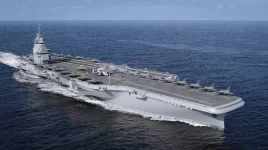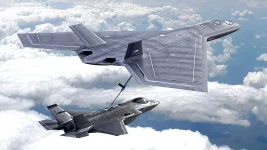- Views: 3K
- Replies: 34
India is poised to enter the elite club of nations capable of manufacturing indigenous fighter jet engines, a significant advancement for its defence industry. Currently, this complex technology is mastered only by the permanent members of the UN Security Council: China, France, Russia, the UK, and the US.
As India seeks to develop a cutting-edge engine for its next-generation fighter jets, it is fielding offers from several global defence giants, including France's Safran, the UK's Rolls-Royce, and the US's General Electric (GE).
While all three nations are eager to partner with India, the offer from GE comes with a caveat. According to a recent report by the Financial Times, the US is hesitant to share the complete intellectual property (IP) for its F414 engine due to concerns stemming from India's long-standing defence relationship with Russia.
Sources indicate that the US government is apprehensive about potential technology transfer to Russia, given the close ties between Moscow and New Delhi. This hesitation has led to a proposed co-development model where a small portion of the IP would be withheld.
Despite this limitation, some analysts believe that the US proposal remains a strong contender. Amit Cowshish, a former senior official in India's Ministry of Defence, suggests that Washington's global influence and established defence relations with India could give their offer significant weight.
"The Americans could possibly be pushing harder with the kind of clout they have, which is much more than that of any other country," Cowshish stated, emphasizing the strategic partnership between the two nations.
However, Safran and Rolls-Royce have presented competing offers that include full transfer of IP rights to India. These proposals would grant India complete control over the technology, including the right to export co-developed engines.
Safran's chairman, Ross McInnes, publicly addressed India's Defence Conclave earlier this month, assuring them of Safran's commitment and contrasting their offer of full IP transfer with that of "other western partners," in an apparent jab at the US.
Rolls-Royce has also expressed a strong interest in collaborating with Hindustan Aeronautics Limited (HAL), India's state-owned aerospace company, to develop a customized engine for India's Advanced Medium Combat Aircraft (AMCA) program. This fifth-generation fighter jet is a key component of India's pursuit of self-reliance in defence technology.
The competition to secure this partnership with India highlights the country's growing importance in the global defence market. India's ambitious military modernization plans aim to bolster its defence manufacturing capabilities through strategic collaborations with leading aerospace companies.
For India, the decision goes beyond immediate technological gains. It involves a complex evaluation of long-term strategic partnerships, defence autonomy, and the desire to reduce reliance on foreign imports, all while ensuring control over any co-developed technology.
The outcome of this decision holds significant implications for India's defence landscape. Joining the ranks of fighter jet engine manufacturers would further solidify India's position as a rising global power in defence technology.



